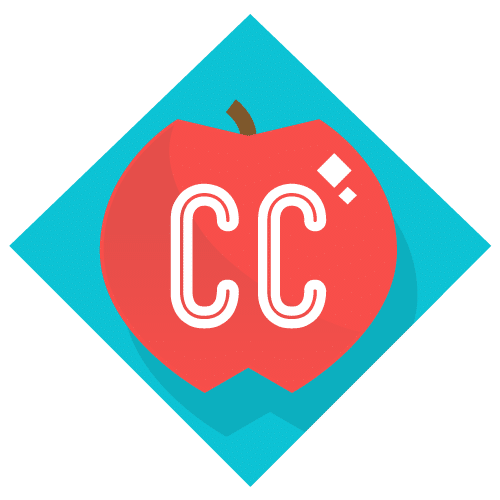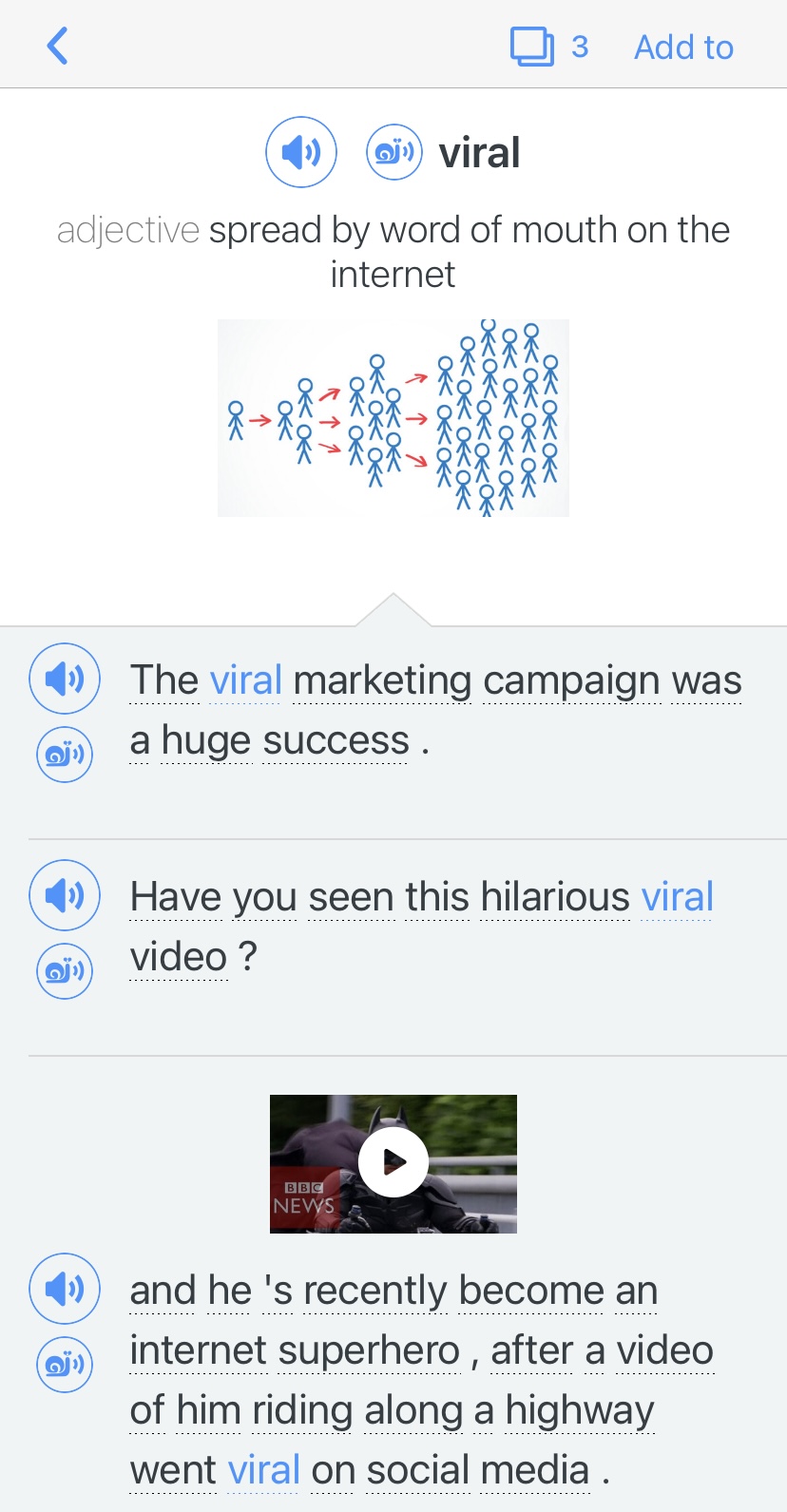Contents
7 Fun Activities for Improving Your English

If I told that there are certain tricks, tips, methods, habits and activities for improving your English quickly, you’d want to know them, right? Of course you would.
Well, if you’re keen (eagerly wanting) to improve your English with activities, there are some very simple things you can do to help you sound like a native in no time.
In this post, I’ll talk about seven easy steps you can take to step up your learning game and improve your English. And we’ve included different tips for beginners, intermediates and advanced learners, so no one’s left out.
Download: This blog post is available as a convenient and portable PDF that you can take anywhere. Click here to get a copy. (Download)
1. Find Native Speakers to Practice Your Communication Skills
Reading language textbooks and checking out pronunciation guides are important, but they won’t always help you speak English.
Finding a teacher, a study buddy or, even better, a native speaker to practice your English with is vital.
Beginner: Use Websites That Provide English Tutors
There are several websites and platforms that provide on-demand language tutors to those who need it. You’ll have a personal mentor who will conduct regular classes over Skype or video call and teach you how to speak English.
This is particularly useful for beginners who don’t have access to the right offline resources or local classes in their neighborhood.

A good site for an online English tutor is Verbling, where you can look for teachers based on your schedule and budget.
Verbling is a virtual platform that connects learners with professional teachers. With teachers all over the world, you can always find someone to tutor you at any hour. Browse through teachers’ profiles to see how much they charge, their previous ratings, how long their lessons last and more.
This allows you to pick a teacher that’s totally right for you and your learning style.
Intermediate: Use Social Apps Like HelloTalk and Tandem

There are specific apps designed to help people learn or teach a language. Some of the more popular ones are HelloTalk and Tandem, among others.
Both of these are free. You just need to create an account and you’ll be connected to English speakers in no time.
Moreover, you can also volunteer to teach your own native language to other people, making it a fair exchange.
Advanced: Find Relevant Servers on Discord

If you already have a reasonable command over the language, it will be even better for you to find people with whom you can talk about topics you’re passionate about, such as video games, movies and politics.
Discord is the perfect platform where you can join “servers,” or groups, and talk to multiple people over text, voice or video about interesting topics.
You can browse websites like Reddit for links to relevant servers, join them and meet new people!
2. Challenge Yourself to Learn More Words
The more words and idioms you know, the better you’ll be able to express yourself. No matter what level you’re at, improving your vocabulary is a must.
Beginner: Play Scrabble with Friends and Study Partners

Word games are much more fun than simply memorizing vocabulary lists. When you’re starting out, playing simple games like Scrabble will not only help you learn new words but also make friends.
If you have an offline study group, grab Scrabble and spend a few hours playing the game.
You can also look for online multi-player options, such as “Words With Friends,” and play with English-speaking strangers online.
Intermediate: Try Innovative Word Games Like “Catena”

If you’re bored with traditional word games like Scrabble, it’s time to play something new like “Catena.”
In this game, you have to form words using the last few letters of the previous word, while following certain rules. For instance, if the word is “permanent,” your next word could be “entertaining,” and so on.
The game has different difficulty levels and options to even play with online folks!
Advanced: Use Vocabulary Lists Containing Difficult Words
For those who are seriously interested in improving their vocabulary, a quick way to do so is to memorize lists.
Take a few words at a time, understand their meanings and try to use them as often as you can.
Here’s an advanced vocabulary list to get you started.
3. Listen to English Audiobooks and Podcasts
Learning to read in a new language doesn’t take up too much time, but listening to native speakers and understanding what they’re saying might get tricky.
This is especially true when you face trouble with accents, pronunciation and voice modulation (pitch, volume and intonation).
However, there’s an easy remedy for that!
Beginner: Listen to English Short Stories
The more you expose yourself to English, the better off you’ll be.
As a beginner, it’s an excellent idea to start out by listening to short stories in English, such as fairy tales and children’s stories. You’ll not only get a sense of how people talk, but also learn about sentence construction and presentation.
And, these will come in handy when you’re introducing yourself, sharing an anecdote (story) or narrating an incident to your friends and co-workers.
Storynory and Agendaweb have some great resources to start out with!
Intermediate: Try Popular Podcasts While You’re Traveling
Once you’ve familiarized yourself with English, you might want to make listening to it a daily habit. You can easily do this by listening to podcasts.

There are thousands of podcasts out there, and you can subscribe to them based on your interests. Plus, you can try out podcasts that are only 15-20 minutes long and spend the time when you’re traveling to work listening to them.
You can check out “Lore”—a personal favorite of mine—where the narrator discusses the historical details behind a particular folktale or superstition. It’s pretty grisly (scary/gruesome), entertaining and informative, and it’s the perfect tool to make language learning fun.
Advanced: Try Novels in the Form of Audiobooks
Once you’re confident that your listening skills are pretty good and you’ve amassed quite a large vocabulary, you can try listening to entire English novels.

This will train you to pay attention to long narratives, understand how different characters and storylines interact and teach you a lot about how English works and how people use it.
A single novel can sometimes teach you much more than a semester’s worth of class!
If you’re looking to download audiobooks for free, Open Culture, an educational media site, has over 1,000 titles listed!
4. Watch an English Language Television Series
Watching television isn’t a waste of time.
Not only does it provide entertainment, but you also get to watch people speak English and pick up on things like body language, facial cues, flirting and so on.
Beginner: Watch “Doctor Who,” “Good Omens” or “Sherlock”
There’s plenty of good stuff in British dramatic television.
You can start off with something short like “Good Omens,” which only has six episodes, or “Sherlock,” which is only a few seasons long. Try to watch them without subtitles, but do turn the subtitles on if it gets difficult.
And, to make it a regular habit, try watching a long-running television show like “Doctor Who.”
By watching just one episode a day, you’ll have something fun to look forward to that also doubles as an English lesson.
Intermediate: Watch YouTube Channels or Web Series
If television isn’t your cup of tea (if you don’t like it), you can also check out educational YouTube channels, like Crash Course, where you can learn a lot in a particular subject, such as astronomy, psychology or gaming.
Or, try The Nerdwriter, which provides insightful analyses (studies) about pop culture and forces you to develop your critical thinking skills.
You can even check out a web series like “The Lizzie Bennet Diaries,“ a modern-day adaptation of Jane Austen’s novel, “Pride and Prejudice.”
Advanced: Watch “Game of Thrones” or “House of Cards”
Finally, you can also check out long-running television shows with several characters and multiple complex storylines, which will build on your English comprehension skills.
If you enjoy medieval/high fantasy, then check out “Game of Thrones.” Here’s a quick language lesson from our YouTube channel:
Or, if you’re up for contemporary politics, watch “House of Cards.”
As an added challenge, watch them without subtitles!
5. Read English News and Journals
If you already develop a habit of reading, then learning English becomes much easier.
However, as a language learner, you may not always have enough time to finish long storybooks, so here are some useful alternatives.
Beginner: Follow the BBC for News
Staying up to date on news and world affairs is pretty important, and a good site to follow is the BBC.
The BBC covers news of all kinds, including international, travel, sports and cultural news.
Reading short news reports every day will also help develop your writing skills and teach you how to present relevant information in a brief manner.
Intermediate: Read Magazines Like The New Yorker
Magazines like The New Yorker are famous for their editorials and cultural criticism.
Their essays, articles and cartoons will encourage you to think about important issues in a new way and inform you about things of which you may have been unaware.
At the same time, you’ll be improving your English comprehension and writing skills.
Advanced: Read Magazines Like The Paris Review
For those who’ve always enjoyed reading or writing stories and poems, following a literary magazine, such as The Paris Review, is vital to develop your skills further.
You’ll get a taste of the very best of contemporary fiction and poetry, read in-depth interviews with authors you admire and discover new writers to read and learn from.
Moreover, you’ll learn to appreciate the English language in a drastically (extremely) new way and become a more creative person.
6. Take MOOCs to Advance Your Skills
Massive Open Online Courses—or MOOCs, as they are commonly called—are a great way to get access to educational resources provided, mostly for free, by some of the world’s best universities.
The best part is that you can choose courses in areas that you’re weak in and improve upon them.
Beginner: Improve Your English Communication Skills on Coursera

It will teach you how to speak professionally, whether over the phone or in person, build a portfolio and even write official emails in English.
Taught by faculty from the Georgia Institute of Technology, this course will take approximately five months to finish.
Coursera is an educational platform that offers courses and specializations from top universities all around the world. You can either take courses for free or pay to receive a certificate at the end of your training.
Courses are taught by highly-qualified professionals and are 100% online so you can take them from anywhere.
Intermediate: Try Upper-intermediate English on edX

From preparing for an interview to writing formal letters, this is a good course that promises to improve your language skills.
Additionally, the course includes materials and suggestions for those looking to pass the Cambridge University First Certificate in English Examination (FCE).
Advanced: Try an Advanced Grammar and Punctuation Course on Coursera
English Grammar can get pretty confusing, and there are so many advanced rules that students are unaware of and only gradually learn.
Fortunately, there’s an amazing course on Coursera for non-native speakers that focuses on advanced topics, such as conditionals and noun clauses.
You’ll learn how to form complex and grammatically-correct sentences without any fear and gain more confidence in your English abilities.
And, if you devote just five hours a week, you’ll complete the advanced grammar and punctuation course in only five months.
7. Keep a Diary
From my own experience, I can tell you how keeping a diary and regularly writing in it has helped me be a better writer and a more self-aware person.
And, if you’re keen on improving your English writing skills, why not keep a journal?
Beginner: Use Writing Prompts
Most people are frightened at the very prospect (idea) of filling up a blank page. They think they don’t know how to write when actually the problem is they have no idea what to write about.
The best remedy in such a case is to pick a topic and simply begin writing.
So, if you’re looking for ideas, here’s a prompt list to get you started writing about your personal life in English.
Write a paragraph or two a day before taking on something more challenging.
Intermediate: Check for Errors Using Grammarly Premium
Grammarly is one of the best free spell-checking programs out there, but they also have a Premium version with super helpful features.
If you’ve already made writing a regular habit and you’re keen to write in a lucid (understandable) and concise way that’s also free of grammatical errors, then you should check out Grammarly’s Premium plans.
A premium account comes with a plagiarism detector, genre-specific writing checks and even vocabulary enhancement suggestions. If your professional life involves a lot of English writing, this is a must-have tool.
Whether you use Grammarly’s free option or pay for the Premium plan, this program will make sure your writing is free of spelling mistakes and typos and that it sounds great.
Advanced: Use the Hemingway Editor

If you’re serious about writing in English, then you must realize that editing forms a very big part of it. And, since professional editors are pretty expensive to hire, you can use this brilliant app called the Hemingway Editor.
The app will make your writing more readable by color-coding it, with different colors offering different suggestions regarding the use of adverbs, passive voice, alternative words and so on.
These seven steps are just a starting point—feel free to branch out and try new things!
The important lesson to keep in mind is to create variety in your learning routine. It will keep things engaging and challenging.
And, the more interested you are the more effort you’ll put in to learn. So, be dedicated in your studies and have fun while you’re at it. You’ll be fluent in English in no time!
Download: This blog post is available as a convenient and portable PDF that you can take anywhere. Click here to get a copy. (Download)
And One More Thing...
If you're like me and enjoy learning English through movies and other media, you should check out FluentU. With FluentU, you can turn any subtitled content on YouTube or Netflix into an engaging language lesson.
I also love that FluentU has a huge library of videos picked specifically for English learners. No more searching for good content—it's all in one place!

One of my favorite features is the interactive captions. You can tap on any word to see an image, definition, and examples, which makes it so much easier to understand and remember.
And if you're worried about forgetting new words, FluentU has you covered. You'll complete fun exercises to reinforce vocabulary and be reminded when it’s time to review, so you actually retain what you’ve learned.
You can use FluentU on your computer or tablet, or download the app from the App Store or Google Play. Click here to take advantage of our current sale! (Expires at the end of this month.)














